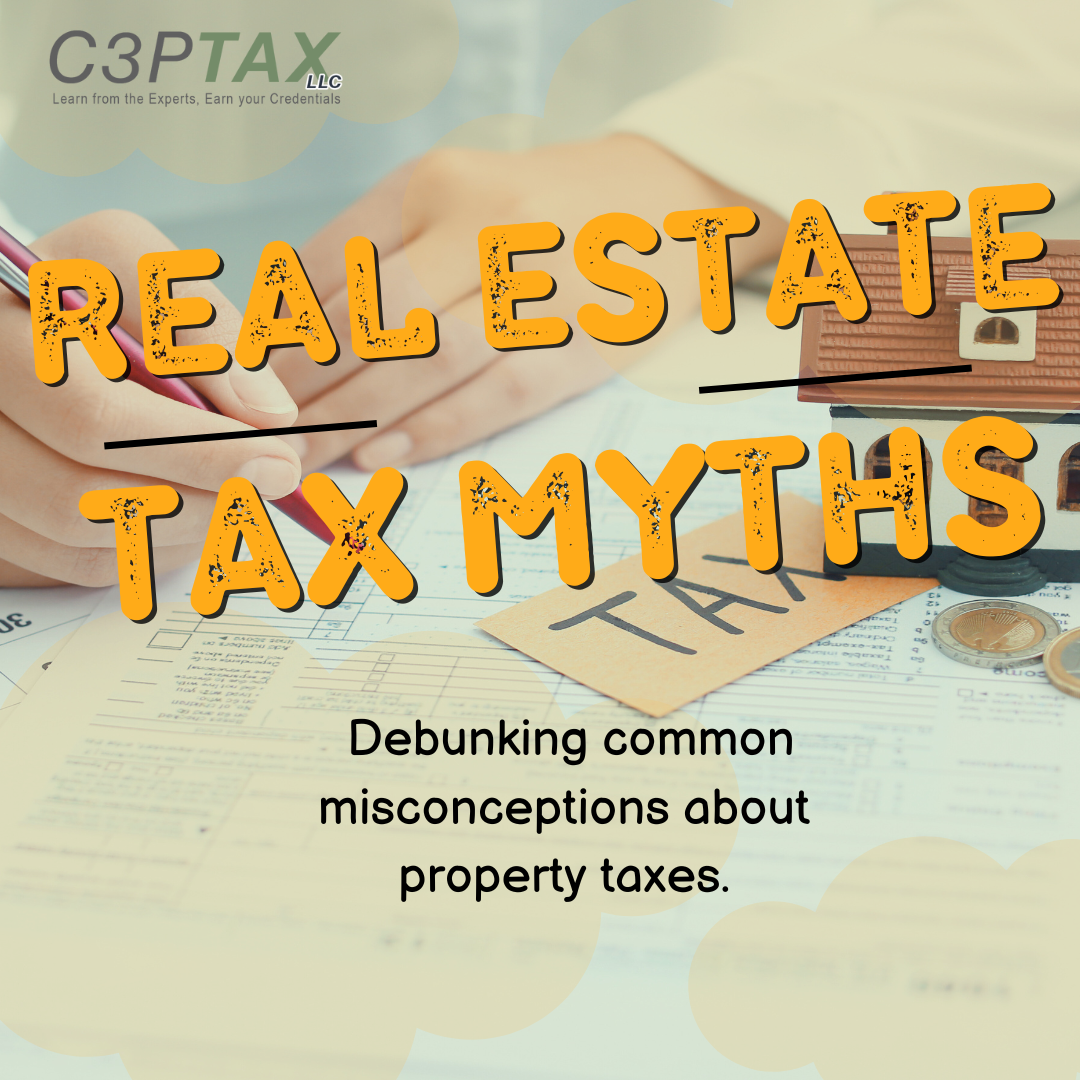

Introduction to Estate Planning and Real Estate Taxes
Estate planning is a comprehensive process that involves the preparation of tasks to manage an individual’s asset base in the event of incapacitation or death. The primary goal of estate planning is to ensure that an individual’s wishes regarding their assets are honored while minimizing taxes and other expenses. Within this context, real estate taxes emerge as a significant factor that needs careful consideration and management.
Real estate, often one of the most substantial assets within an estate, can be subject to a variety of taxes. These include property taxes, capital gains taxes, and estate taxes. Each of these tax categories has distinct implications for the overall value and distribution of the estate. Effective estate planning must, therefore, incorporate strategies to manage these taxes, ensuring that beneficiaries receive the maximum benefit from the estate with minimal tax liability.
The intricacies of real estate taxes necessitate a nuanced understanding of key terms and concepts. Terms such as “tax basis,” “fair market value,” and “step-up in basis” become integral to structuring an efficient estate plan. A tax basis refers to the asset’s value for tax purposes, which is crucial in determining capital gains or losses when the property is sold. The fair market value is the estimated price at which the property would sell on the open market. A step-up in basis is a favorable tax provision that adjusts the tax basis of inherited property to its value at the decedent’s date of death, potentially reducing capital gains taxes owed by the heirs.
Understanding and managing real estate taxes within estate planning is not merely a matter of compliance. It is a critical component that can significantly affect the financial wellbeing of the heirs and the overall efficiency of the estate transfer process. By addressing real estate taxes proactively, individuals can ensure that their legacy is preserved and distributed according to their wishes, free from the undue burden of excessive taxation.
Real estate taxes are a critical component of estate planning, encompassing various types levied at different government levels. Primarily, real estate taxes include property taxes, capital gains taxes, and other relevant taxes that impact real estate holdings.
Property Taxes
Property taxes are local taxes imposed by municipalities based on the assessed value of the real estate. The revenue from these taxes generally funds local services such as schools, public safety, and transportation infrastructure. Property assessments are conducted periodically, and the valuation is multiplied by the local tax rate to determine the amount owed by property owners annually.
Capital Gains Taxes
When a real estate asset is sold, the seller may incur capital gains taxes on the profit. The rate and applicability depend on the duration of ownership and whether the property is classified as a primary residence or an investment property. Capital gains taxes are governed by federal regulations, with varying rates for short-term and long-term holdings. Notably, primary residences may qualify for certain exclusions, reducing the taxable amount.
Additional Taxes
Beyond property and capital gains taxes, several other taxes may affect real estate. Transfer taxes apply during the conveyance of property ownership and vary by state and locality. Estate taxes may also influence real estate holdings at the federal and state levels, especially when transferring property upon the death of the owner. In certain jurisdictions, inheritance taxes specifically levy on beneficiaries receiving property.
Federal, State, and Local Real Estate Taxes
The differentiation among federal, state, and local taxes is pivotal in understanding the comprehensive tax liability on real estate. Federal taxes, such as capital gains and estate taxes, are standardized nationwide, while state and local taxes, including property and transfer taxes, differ widely in rates and regulations. Estate planners must account for these variations to effectively manage real estate taxes, optimizing financial outcomes for estate beneficiaries.
Impact of Real Estate Taxes on Estate Planning
Real estate taxes play a crucial role in the estate planning process, often shaping the decisions and strategies employed to achieve financial goals. The interplay between tax liabilities and these goals is intricate, necessitating a comprehensive understanding of how various tax scenarios can impact an estate plan. One pertinent scenario involves the inheritance of real estate property. When heirs receive property through inheritance, the property’s value typically undergoes a step-up in basis to its fair market value at the date of death. This adjustment can significantly reduce the capital gains tax liability if the heirs decide to sell the property. However, estate taxes might still be a concern, particularly if the total value of the estate exceeds the federal or state exemption limits.
Another common situation in estate planning is the gifting of property. Gifting real estate during the property owner’s lifetime can help mitigate estate taxes by gradually transferring property out of the estate. Nonetheless, this approach requires careful consideration of gift taxes, which apply if the property’s value exceeds the annual exclusion limit. Additionally, the recipient inherits the donor’s original basis in the property, potentially leading to higher capital gains taxes upon sale.
Property valuation is another critical factor influencing tax obligations and planning strategies. Regular property appraisals are essential to ensure accurate valuation, as undervaluation or overvaluation can lead to unintended tax consequences. For instance, undervaluing a property can result in underestimated tax liabilities, potentially leading to penalties and interest. Conversely, overvaluing a property can inflate estate and gift taxes, undermining the financial goals of the estate plan. Strategic use of discounts, such as those for minority interests or lack of marketability, can help in managing these valuations more effectively, thereby optimizing tax outcomes.
Overall, the intricate relationship between real estate taxes and estate planning necessitates a tailored approach, balancing tax liabilities with broader financial objectives. By addressing inheritance, gifting, and property valuation meticulously, individuals can create robust estate plans that align with their long-term goals and minimize tax burdens.
Strategies to Minimize Real Estate Taxes
Effective estate planning often involves the strategic management of real estate taxes. Various strategies can be employed to minimize the financial burden associated with these taxes. Through approaches such as property gifting, establishing trusts, leveraging tax exemptions, and utilizing family limited partnerships (FLPs), individuals can significantly mitigate their tax liabilities. Below, we explore each method in detail, accompanied by illustrative examples.
Property Gifting: One of the most straightforward strategies to reduce real estate taxes is by gifting property. This involves transferring ownership of real estate to heirs during the owner’s lifetime. By doing so, the estate value is reduced, thereby lowering potential estate taxes. For example, if an individual gifts a property valued at $500,000 to their children, it reduces the estate’s overall value, which may result in lower estate taxes upon the benefactor’s passing.
Establishing Trusts: Trusts are powerful tools in estate planning. They provide a way to manage and protect assets while potentially minimizing tax implications. An irrevocable trust, for instance, removes the ownership of assets from the estate holder’s control, thereby excluding the value of these assets from the estate. As a case study, an individual might place a $1 million property into an irrevocable trust; the property then does not count towards the taxable estate, leading to potential tax savings by reducing the estate’s taxable value.
Leveraging Tax Exemptions: Numerous tax exemptions can be leveraged to minimize real estate taxes. The federal estate tax exemption, for example, allows a substantial amount of an individual’s estate to be passed on to heirs tax-free. As of 2023, this exemption stands at $12.92 million per individual. Strategic usage of these exemptions can considerably lessen the tax burden. For instance, a couple can combine their exemptions to transfer up to $25.84 million tax-free.
Using Family Limited Partnerships (FLPs): FLPs provide a method to transfer assets to family members in a tax-efficient manner. In an FLP, parents can retain control over the property while gradually transferring ownership to their children. This not only facilitates the reduction of the taxable estate but also potentially qualifies for valuation discounts. For example, forming an FLP to transfer a $2 million property may qualify for a discount, treating the property as if it were worth significantly less for tax purposes.
By integrating these strategies into estate planning, individuals can effectively manage and minimize real estate taxes, ensuring a smoother transition of assets with reduced financial implications.
Using Trusts in Real Estate Tax Management
Trusts play a pivotal role in managing real estate taxes within the sphere of estate planning. Two primary types of trusts utilized in this context are revocable and irrevocable trusts. Each offers distinct mechanisms and benefits for reducing tax liabilities, safeguarding assets, and facilitating the seamless transfer of property from one generation to the next.
Revocable trusts, also known as living trusts, allow the trust creator (grantor) to retain control over the property and assets within the trust during their lifetime. One of the significant benefits of using revocable trusts is the avoidance of probate, which can be a lengthy and costly process. By keeping the property within a revocable trust, beneficiaries can access the assets more promptly and with reduced legal expenses. However, it is crucial to note that revocable trusts do not offer substantial tax advantages during the grantor’s lifetime, as the assets are still considered part of the grantor’s taxable estate.
Irrevocable trusts, on the other hand, provide more robust tax benefits. Once assets are transferred to an irrevocable trust, the grantor relinquishes control over them, rendering those assets no longer part of the grantor’s taxable estate. Consequently, this can significantly reduce estate taxes upon the grantor’s death. Further, assets within irrevocable trusts may be shielded from creditors, offering an added layer of protection. However, the rigidity of irrevocable trusts means that they cannot be easily modified or revoked, making careful planning and consideration essential.
Real-life cases underline the efficacy of trusts in estate planning. For instance, a family might place their primary residence in a qualified personal residence trust (QPRT). By doing so, they can remove the home’s value from their taxable estate, potentially saving thousands in estate taxes while continuing to live in the residence for a specified period.
Utilizing trusts in real estate tax management is a nuanced and strategic approach that requires a thorough understanding of both benefits and limitations. With careful planning, trusts can significantly ease tax burdens, protect assets, and ensure that property transfers smoothly across generations.
“`html
The Role of Professional Advisors
When it comes to managing real estate taxes within the framework of estate planning, the complexity of tax laws and regulations necessitates the involvement of skilled professional advisors. Consulting with lawyers, accountants, and financial planners is crucial for formulating a tax-efficient estate plan while ensuring compliance with the applicable tax legislation.
Lawyers specializing in estate planning provide invaluable legal advice. They guide clients through the intricacies of estate taxes, helping to structure their estate in a manner that minimizes tax liabilities. Lawyers are adept at drafting wills, trusts, and other essential documents that can safeguard assets and streamline the transfer of property. They also stay abreast of changes in tax laws, ensuring that estate plans remain compliant and updated.
Accountants play a pivotal role by offering comprehensive financial advice and handling the numerical aspects of estate planning. Their expertise in tax codes allows them to identify opportunities for tax minimization and efficient estate management. Accountants can conduct detailed financial analyses, create projections for future tax implications, and ensure that all tax filings are accurate and timely. This financial insight is critical for making informed decisions about asset distribution and estate value preservation.
Financial planners contribute by integrating real estate into the broader context of an individual’s financial strategy. They assess how real estate holdings align with overall financial goals and retirement plans. Financial planners can advise on investment strategies, liquidity needs, and the balance between real estate and other asset classes. Their holistic approach ensures that the estate plan not only addresses tax efficiency but also supports long-term financial stability and growth.
Selecting the right professional advisors is paramount. Look for individuals with relevant experience, licensure, and a track record of success in estate planning and tax consultation. Recommendations from trusted sources, thorough interviews, and evaluations of advisors’ familiarity with current tax laws are essential steps in making an informed choice. Collaborating with a knowledgeable team can significantly enhance the effectiveness and compliance of your estate plan.
Common Mistakes to Avoid
In the realm of estate planning, managing real estate taxes presents several pitfalls that can have lasting financial implications. A prevalent mistake is underestimating the value of the property. Real estate markets fluctuate, and properties can appreciate significantly over time. Failure to periodically reassess property value can lead to inaccurate taxation and, consequently, an inflated tax burden for beneficiaries. It is advisable to conduct regular property appraisals to ensure accurate inclusion in estate planning documents.
Another common error is neglecting to update estate plans. Life events such as marriage, divorce, births, deaths, and significant changes in financial status necessitate revisiting and revising estate plans. Over time, personal circumstances and legislative changes can render initial plans obsolete or inadequate. It’s essential to review and update your estate plan periodically to reflect current values and legal frameworks, thereby ensuring that your wishes are properly executed and beneficial tax positions are optimized.
Additionally, many individuals fail to capitalize on available tax exemptions and deductions. Each jurisdiction may offer specific exemptions, such as the homestead exemption, or deductions for particular types of real estate or conditions. Missing out on these opportunities means potentially paying higher taxes than necessary. Consulting with a specialized estate planning attorney or tax advisor is crucial to identify and leverage all available exemptions and deductions effectively.
To avoid these common mistakes, consider engaging with qualified professionals who can provide tailored advice and updates based on current laws and your evolving estate plans. Regularly tracking the value of your real estate, updating your estate plans in response to life changes, and fully utilizing tax benefits are strategic measures that can substantially improve the efficiency and effectiveness of estate planning concerning real estate taxes.
Conclusion and Next Steps
Throughout this blog post, we have explored the intricate relationship between estate planning and real estate taxes. Managing real estate taxes in estate planning is crucial for minimizing financial burdens on heirs and ensuring the intended distribution of assets. We have discussed essential strategies such as establishing trusts, utilizing tax exemptions, and strategically gifting property to manage potential tax liabilities effectively.
The importance of real estate tax planning cannot be overstated. Properly addressing these taxes within your estate plan helps avoid potential legal entanglements, reduces the monetary impact on beneficiaries, and aligns with your long-term financial goals. By being proactive, you can ensure a smoother transition of your real estate holdings while optimizing tax outcomes.
We strongly encourage you to take definitive steps towards integrating real estate tax considerations into your estate planning. Consulting with an experienced estate planning professional is a paramount step, as their expertise can provide tailored advice specific to your situation. This professional guidance ensures that all available legal avenues are explored and that your estate plan remains robust and compliant with current tax laws.
Additionally, begin an estate inventory process to catalog all real property and related financial information. Having a comprehensive record simplifies the planning process and aids professionals in offering the most effective advice. Leveraging useful resources for further reading and study, such as authoritative books on estate planning, IRS guidelines, and legal journals, can enhance your understanding and approach.
In essence, the complexity of real estate taxes necessitates careful planning and informed decision-making. By integrating these elements into your estate strategy, you protect your wealth and provide clarity and security for your heirs. Begin your journey today towards a well-structured estate plan by seeking professional advice and keeping abreast of evolving regulations and best practices.
 Français
Français 















